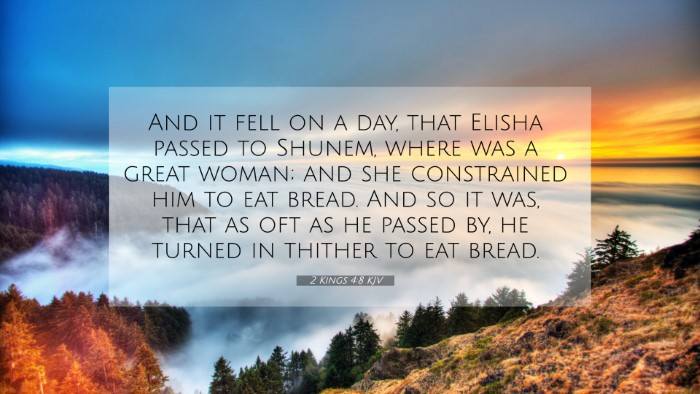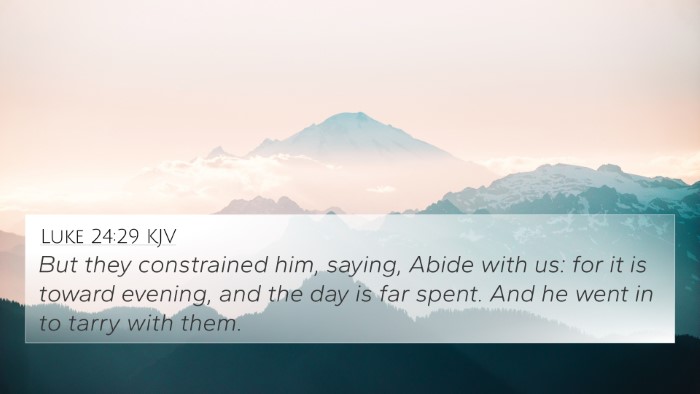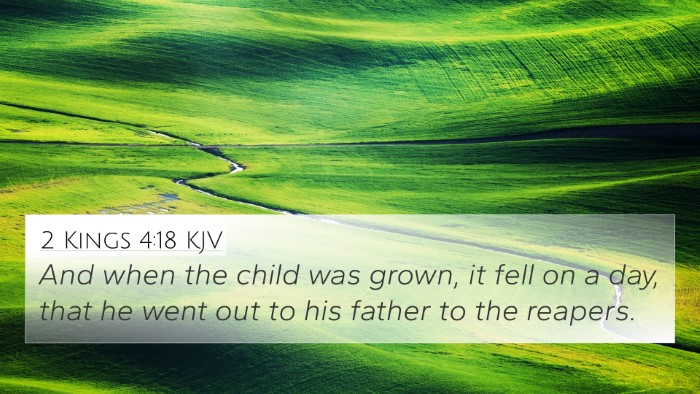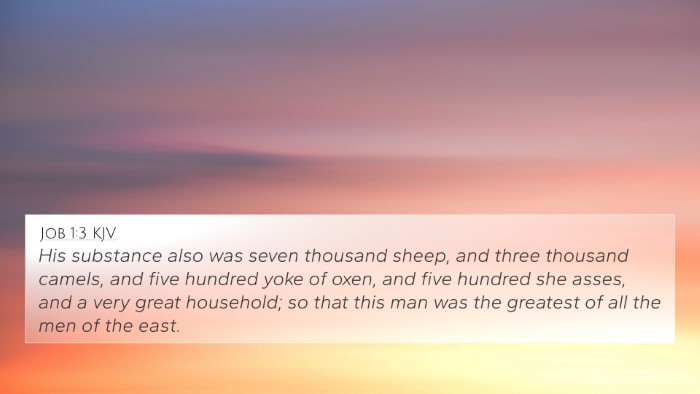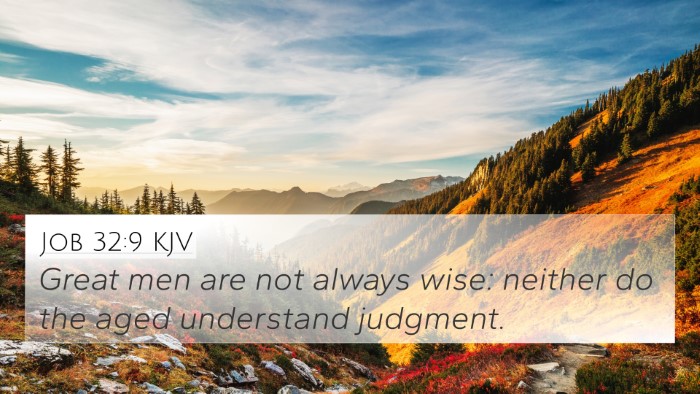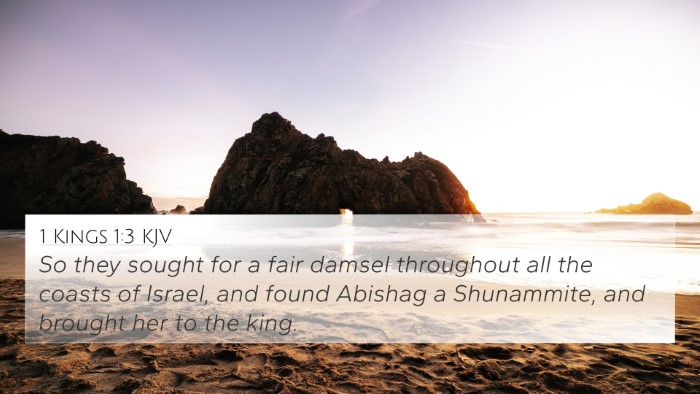Understanding 2 Kings 4:8
2 Kings 4:8 states:
"And it fell on a day, that Elisha passed to Shunem, where was a great woman; and she constrained him to eat bread. And so it was, that as oft as he passed by, he turned in thither to eat bread."
Verse Meaning and Interpretation
This verse focuses on the interaction between the prophet Elisha and a notable woman in Shunem. It highlights several important themes and insights:
- The Hospitality of the Shunammite Woman: The woman's act of inviting Elisha to her home demonstrates a graciousness and a recognition of the spiritual authority that Elisha carried. Such hospitality is often celebrated in scripture, reflecting a character trait valued by God.
- Divine Encounters: The phrase "it fell on a day" suggests that there are divine appointments, where God orchestrates encounters that can lead to significant spiritual moments. This highlights the importance of being open to divine interruptions in our lives.
- Significance of Community and Support: By providing food and shelter, the Shunammite woman engages in an act of service, which strengthens community ties and illustrates the principle of mutual support among believers.
Commentary Insights
Public domain commentaries provide further insights into this verse:
Matthew Henry's Commentary
Henry emphasizes the importance of recognizing God’s servants and treating them with respect. He notes that the Shunammite woman's actions exemplify a commendable faith that seeks to support the prophetic ministry.
Albert Barnes' Notes
Barnes highlights the "great woman" as someone of virtue and importance. He draws attention to the idea that true greatness in God’s eyes is demonstrated through service to others. Furthermore, her actions pave the way for future blessings in her life.
Adam Clarke's Commentary
Clarke provides context to the Shunammite woman's status and further elaborates on her hospitality, noting that her actions were not just practical but were expressions of her faith and recognition of God's work through Elisha.
Cross-References
Understanding this verse can be enriched by examining additional biblical texts that share similar themes:
- 1 Kings 17:8-16: The story of the widow of Zarephath who provides for the prophet Elijah.
- Hebrews 13:2: A reminder to show hospitality to strangers, for some have entertained angels unawares.
- Acts 9:36: The good works of Tabitha (Dorcas), another woman recognized for her kindness.
- 2 Kings 4:10: The woman's continued hospitality, which leads to the establishment of a space for Elisha.
- Luke 10:38-42: The story of Martha and Mary, showcasing the importance of hospitality and service.
- Philippians 4:19: Assurance that God will supply all needs as we serve faithfully.
- Matthew 10:41: Jesus’ teaching on receiving a prophet and the rewards that follow.
Thematic Connections
This narrative is not just isolated; it connects with broader themes within the scripture:
- Service and Generosity: Throughout scripture, God commends those who serve others, establishing a pattern of generosity that reflects His own nature.
- God's Provision: The acts of hospitality lead to God's provision in unexpected ways—illustrating that serving others can open the door for divine blessings.
- Recognition of God's Work: The Shunammite woman’s acknowledgment of Elisha’s status can be seen as a broader principle of recognizing and honoring God’s appointed ones.
Conclusion
2 Kings 4:8 presents a narrative that is rich with insights on hospitality, divine appointments, and the blessings that come through acts of service. Through the themes of community support, recognition of God’s ministry, and the implications of loving service, it serves as a call for believers to embody these principles in their lives.
Further Study and Reflection
For a deeper understanding of this verse and its connections, consider exploring the following:
- The role of women in the Old Testament and their contributions to God’s story.
- How hospitality is portrayed throughout the New Testament.
- The impact of prophetic ministry on everyday lives.
Tools for Bible Cross-Referencing
Utilizing tools for Bible cross-referencing can help readers find connections between verses and themes, enriching study and understanding. Some useful methods include:
- Bible Concordance: This tool provides an alphabetical listing of words found in the Bible, helping search for themes and connections.
- Bible Cross-Reference Guide: A resource that lists related verses for deeper study.
- Cross-Reference Bible Study: Engaging in comparative analyses of verses enhances understanding of scriptural unity.


